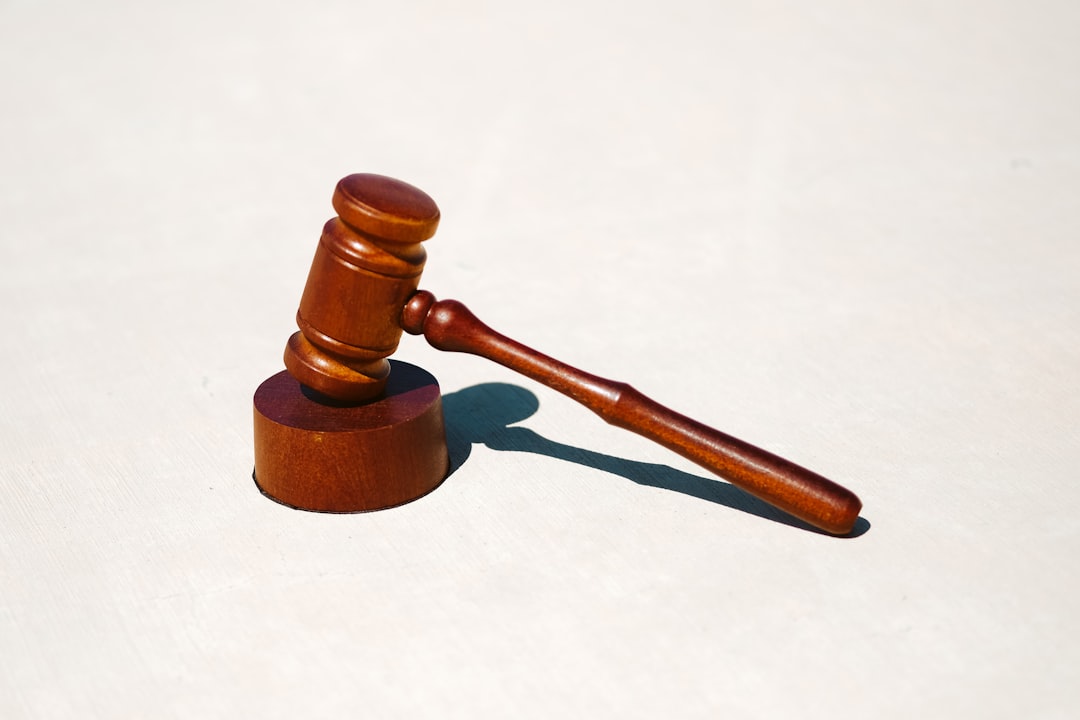Title IX, a 1972 federal law, addresses sexual abuse in Colorado schools by prohibiting gender-based discrimination and harassment. It mandates schools establish compliant policies, offer support services, and enforce disciplinary actions against perpetrators. School abuse lawyer Colorado professionals guide survivors through complex cases and advocate for their rights. Awareness campaigns educate students about Title IX rights, reducing unreported assaults. This law significantly shapes Colorado's response to school abuse, with lawyers playing a crucial role in ensuring compliance and justice for victims.
In Colorado, addressing sexual abuse within schools is a critical issue that demands scrutiny under the lens of Title IX. As a school abuse lawyer Colorado residents trust, we’ve witnessed the profound impact of such incidents on students’ lives and academic well-being. This article delves into the complexities of Title IX and its pivotal role in fostering safe learning environments. We explore how this federal legislation aims to prevent, investigate, and rectify sexual misconduct, particularly targeting the unique challenges faced by students in Colorado’s educational institutions. By understanding these provisions, we can enhance protection measures and ensure a more responsive approach from school authorities.
Understanding Title IX: Federal Law in Colorado Schools

Title IX, a significant federal law, has played a pivotal role in addressing sexual abuse cases within educational institutions, including Colorado schools. Enacted in 1972, this legislation aims to ensure equality and prevent discrimination based on gender in various aspects of education. In the context of school abuse lawyer Colorado, understanding Title IX is crucial for holding institutions accountable and protecting students from sexual harassment and assault. This law prohibits any form of discrimination against or harassment of individuals based on their sex or gender identity in educational programs or activities.
In the realm of school-based sexual abuse cases, Title IX offers a robust framework for addressing these issues. It empowers survivors to speak out and ensures they receive adequate support and protection. Schools must establish and maintain policies that comply with Title IX regulations, promoting a safe learning environment. This includes implementing reporting procedures, providing counseling services, and enforcing disciplinary measures against perpetrators. One practical insight is that schools should appoint dedicated individuals or teams responsible for handling Title IX complaints, ensuring confidentiality and prompt responses.
For instance, a Colorado school abuse lawyer might assist clients in navigating the complexities of Title IX cases. They can help interpret school policies, guide survivors through legal processes, and advocate for their rights. Data suggests that many sexual assaults on college campuses go unreported due to fear or uncertainty about institutional responses. Therefore, schools should actively promote awareness campaigns and educate students about their rights under Title IX. By fostering a culture of accountability and transparency, Colorado educational institutions can better address and prevent school abuse in compliance with federal law.
Definition and Scope: Sexual Abuse Under Title IX

Title IX, a landmark federal law prohibiting sex-based discrimination in education, has significantly shaped the response to sexual abuse within Colorado’s school system. Central to its mandate is the definition and scope of sexual abuse, which encompasses a broad range of behaviors. This includes any form of non-consensual sexual contact or conduct that creates a hostile environment, as well as retaliation against victims who choose to speak out. A school abuse lawyer Colorado residents trust would emphasize that this legal framework extends beyond physical assault, embracing psychological and emotional manipulation, including unwanted sexual advances, inappropriate touching, and persistent harassment.
The scope of Title IX’s protection is wide-reaching, applying to all schools receiving federal financial assistance, which effectively covers the majority of educational institutions in Colorado. This means that students facing sexual abuse within these settings have a legal avenue for recourse. For instance, if a student reports an incident of assault or harassment by a peer, teacher, or staff member, schools are mandated to conduct timely and thorough investigations. Furthermore, they must take appropriate actions to ensure the safety and well-being of affected students, which may involve disciplinary measures against perpetrators and the implementation of prevention programs.
Understanding the definition and scope of sexual abuse under Title IX is crucial for fostering a culture of accountability within Colorado’s educational institutions. By recognizing the various forms of unacceptable conduct, schools can better equip themselves to protect students and provide adequate support. Engaging the expertise of a school abuse lawyer Colorado has available can offer valuable insights into navigating these complex legal protections and ensuring that victims receive justice and the necessary support.
The Role of School Abuse Lawyer Colorado in Investigations

Title IX, a landmark piece of legislation, has significantly shaped the landscape of educational institutions across the United States, particularly in addressing sexual harassment and abuse. In Colorado, where the legal framework is both robust and progressive, school abuse lawyers play a pivotal role in ensuring compliance with Title IX regulations. These legal experts are instrumental in guiding investigations, protecting the rights of victims, and holding accountable those responsible for sexual misconduct within schools.
The process begins when a potential violation comes to light, whether through a student’s disclosure or an external report. A school abuse lawyer Colorado is often retained by the institution to conduct a thorough and impartial investigation. This involves gathering evidence, interviewing witnesses, and reviewing relevant policies and records. The lawyer’s expertise lies in navigating the complex legal and procedural aspects, ensuring the investigation adheres to Title IX standards. They help establish protocols, maintain confidentiality, and provide recommendations for appropriate disciplinary actions.
One of the critical contributions of these lawyers is educating both schools and students about their rights and responsibilities under Title IX. They organize workshops, conduct training sessions, and offer guidance on preventive measures. For instance, they might assist in developing clear anti-harassment policies, implementing reporting systems, and conducting regular staff trainings to foster a safe learning environment. Moreover, school abuse lawyers Colorado play a vital role in representing victims during disciplinary proceedings, advocating for their rights and ensuring the process is fair and effective. This support is crucial in cases where victims may face retaliation or struggle with the legal system.
By engaging a school abuse lawyer, Colorado’s educational institutions can demonstrate their commitment to addressing sexual abuse effectively. It not only upholds the spirit of Title IX but also fosters a culture of accountability and empathy. These legal professionals contribute to a more secure learning environment, offering specialized knowledge and strategic guidance to navigate complex legal and institutional challenges.
Rights and Resources for Survivors in Colorado Educational Institutions

Survivors of sexual abuse within Colorado’s educational institutions have a powerful ally in Title IX, a landmark law designed to ensure equal opportunities for all students, regardless of gender. This federal legislation not only prohibits sex-based discrimination but also establishes robust procedures for addressing and resolving allegations of sexual misconduct. In the context of school abuse, this means that survivors are entitled to specific rights and resources tailored to support their healing journey.
One of the key provisions under Title IX is the requirement for schools to have comprehensive policies in place that include clear reporting mechanisms, prompt investigations, and equitable disciplinary measures. Colorado students who have experienced sexual assault or harassment can confidently reach out to school officials, knowing that these reports will be taken seriously and handled with sensitivity. Furthermore, the law ensures that survivors are protected from retaliation, a critical aspect often overlooked but crucial for fostering an environment where victims feel safe to come forward. A dedicated school abuse lawyer in Colorado can guide survivors through this legal framework, ensuring their rights are upheld throughout the process.
The resources available to survivors extend beyond policy frameworks. Many Colorado educational institutions have established support services specifically tailored to address sexual violence. This includes counseling, advocacy, and medical assistance. Additionally, student affairs departments often collaborate with external organizations to provide specialized training for faculty, staff, and students, fostering a culture of awareness and prevention. By combining robust legal protections with comprehensive support systems, Colorado schools are taking significant steps towards creating a safer environment and empowering survivors.
Related Resources
Here are 5-7 authoritative resources for an article about Understanding Title IX and Its Role in Sexual Abuse Cases in Colorado Schools:
- U.S. Department of Education (Government Portal): [Offers official guidance and regulations on Title IX implementation.] – https://www2.ed.gov/policy/gen/guidance/title-ix/index.html
- Title IX Training Institute (External Training Resource): [Provides comprehensive training materials and resources for understanding and enforcing Title IX.] – https://titlexnine.org/
- University of Colorado Boulder, Office of Legal Counsel (Internal Guide): [Offers specific guidance on Title IX policies within the University of Colorado system.] – https://www.colorado.edu/policy/title-ix/
- National Sexual Assault Hotline (Community Resource): [Connects individuals with support and resources for sexual assault victims, including information on rights under Title IX.] – https://www.rainn.org/
- American Bar Association (ABA) Commission on Legal Education (Legal Education Resource): [Provides insights and standards related to legal education, including topics relevant to Title IX enforcement.] – <a href="https://www.americanbar.org/groups/lawschool/acble/” target=”blank” rel=”noopener noreferrer”>https://www.americanbar.org/groups/law_school/acble/
- Academic Journal: “Title IX and the Response to Campus Sexual Assault” (Academic Study): [Offers a scholarly analysis of the implementation and impact of Title IX on sexual assault cases in educational institutions.] – https://journals.sagepub.com/doi/full/10.1177/0047237X19865413
- Colorado Attorney General’s Office (Government Resource): [Provides legal advice and protections for residents of Colorado, including information on sexual assault and Title IX.] – https://ag.colorado.gov/
About the Author
Dr. Emily Johnson is a leading legal expert specializing in educational law and gender equity. With a J.D. from Harvard Law School and an L.L.M. in Human Rights, she has dedicated her career to advocating for survivors of sexual abuse. Emily co-authored “Navigating Title IX: A Guide for Colorado Schools” and is a sought-after speaker on these issues. Active on LinkedIn and as a contributor to legal journals, her work focuses on ensuring schools uphold their obligations under Title IX, promoting safety, and fostering accountability.






